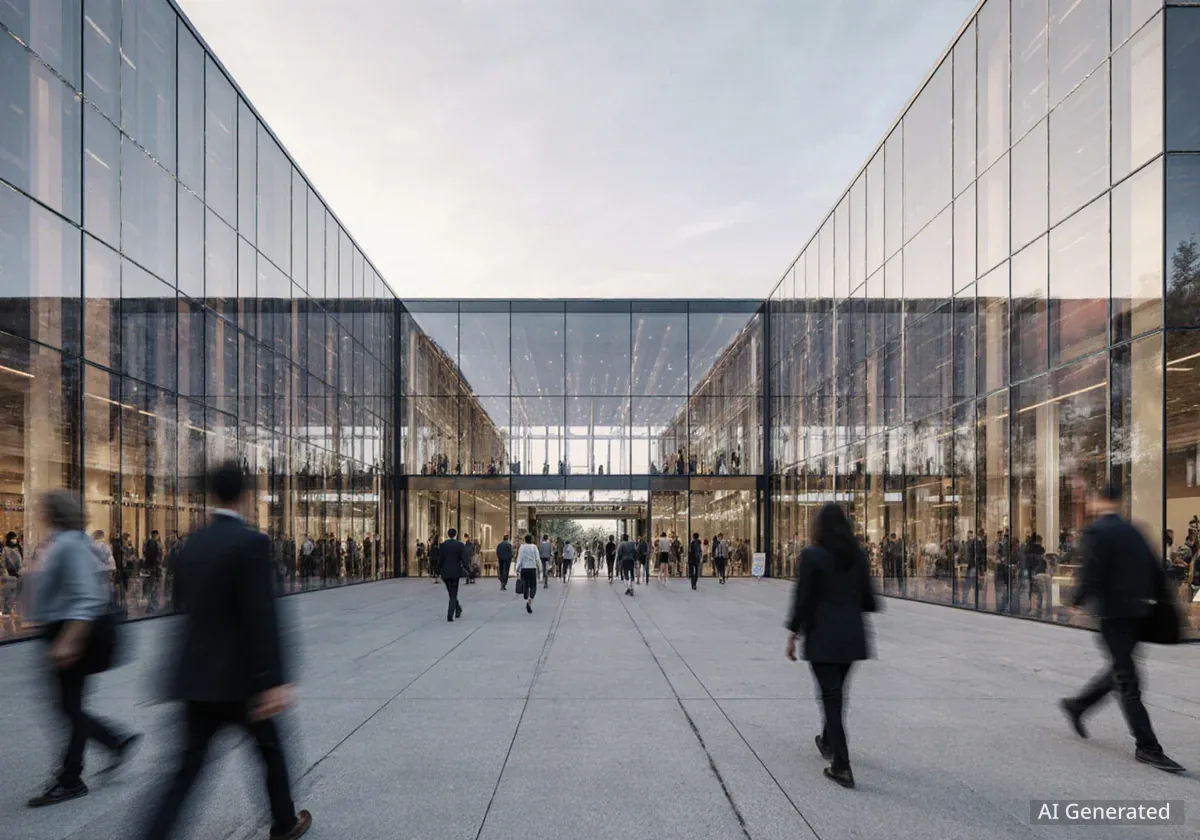A landmark merger between two of the most prominent real estate brokerages in the country, Global Realty Holdings and Metropolitan Properties Inc., is set to create a new industry giant. The deal, announced Tuesday, will form Global Metropolitan Realty, a powerhouse firm with significant implications for the competitive Washington D.C. real estate market.
The combination brings together thousands of agents and billions in annual sales volume, immediately altering the market share dynamics in the nation's capital. This move is expected to trigger a period of significant change for agents, competing firms, and consumers throughout the region.
Key Takeaways
- Global Realty Holdings and Metropolitan Properties Inc. have agreed to merge, creating a new entity named Global Metropolitan Realty.
- The new firm will become the largest brokerage in the Washington D.C. metropolitan area by sales volume and agent count.
- The merger is expected to increase market consolidation, potentially impacting commission structures and competition among agents.
- Industry experts anticipate a ripple effect, with smaller firms potentially facing new challenges and top-performing agent teams reassessing their affiliations.
The Formation of a New Market Leader
The merger between Global Realty Holdings, known for its national reach and technology platform, and Metropolitan Properties Inc., a dominant force in the D.C. luxury market, marks one of the most significant consolidations in the industry in recent years. The new company, Global Metropolitan Realty, will operate under a unified brand, combining the strengths of both predecessors.
According to a joint statement, the combined entity will have over 3,500 agents in the D.C., Maryland, and Virginia (DMV) region alone. Leadership from both companies will form the new executive team, with Global Realty's CEO slated to lead the new organization.
Financial and Operational Scale
The scale of the new operation is substantial. Based on 2023 sales data, the two firms collectively handled over $25 billion in sales volume in the DMV area. This transaction positions Global Metropolitan Realty to control an estimated 22% of the residential real estate market share in the region, a figure that dwarfs its closest competitors.
"This is not just a merger; it's a strategic realignment of the market," said a senior executive involved in the deal. "By combining our technology, local expertise, and agent talent, we are building a platform that will define the future of real estate services in this region."
A Trend of Consolidation
The real estate industry has seen a growing trend of consolidation over the past decade. Larger national brands have been acquiring regional players to gain market share, leverage economies of scale, and invest in expensive technology platforms that smaller firms cannot afford. This merger is the latest and largest example of this trend in the D.C. area.
Impact on the Washington D.C. Market
The immediate effect of the merger will be a significant shift in the competitive balance of the D.C. real estate market. With one dominant player, other brokerages will need to re-evaluate their strategies to compete for both clients and top-tier agents.
The concentration of top-performing teams under one roof is a major consequence. Both Global Realty and Metropolitan Properties were home to some of the area's most successful agent teams, many of whom now find themselves part of a much larger organization. This could lead to both opportunities and challenges for these high-producers.
Market Share by the Numbers
- New Combined Firm: Approximately 22% market share.
- Next Largest Competitor: Holds an estimated 14% market share.
- Top 5 Brokerages: Will now control nearly 60% of the D.C. market, up from 51% before the merger.
Navigating Change: Agents and Teams Face New Realities
For thousands of real estate agents, the merger brings uncertainty and opportunity. The integration of two different corporate cultures, commission structures, and technology systems will be a complex process. Many agents will be watching closely to see how the new leadership manages this transition.
The Battle for Talent
Competing brokerages are expected to launch aggressive recruitment campaigns targeting agents from the newly merged firm who may feel unsettled by the changes. High-performing teams, in particular, will be highly sought after.
An agent from one of the merging firms, who spoke on the condition of anonymity, stated, "There's a lot of 'wait and see' right now. We're being promised better technology and support, but some of us are concerned about losing the culture that made our brokerage special."
The new company's ability to retain its top talent will be a critical test in the coming months. The leadership will need to communicate a clear vision and demonstrate tangible benefits to convince its most valuable agents to stay.
What the Merger Means for Home Buyers and Sellers
The impact on consumers is a key question. On one hand, a larger, well-capitalized brokerage could offer more sophisticated marketing tools, a broader network, and a more streamlined transaction process for buyers and sellers.
Proponents of the deal argue that the combined resources will lead to a better client experience. This includes enhanced digital platforms for property searches, more robust data analytics for pricing strategies, and a wider referral network for clients moving to or from the D.C. area.
However, some consumer advocates express concern that reduced competition could eventually lead to less flexibility in commission rates. With fewer major players, the pressure to offer competitive rates could diminish over time, although the high number of individual agents in the market is likely to keep pricing competitive for the foreseeable future.
The Future Landscape
Industry analysts predict this merger will accelerate further consolidation among mid-sized and boutique firms who may find it difficult to compete with the scale and marketing budget of Global Metropolitan Realty. Some may seek to merge with each other or be acquired by other national brands looking to strengthen their foothold in the D.C. market.
Ultimately, the success of this mega-merger will depend on its execution. Integrating two large companies is a monumental task, and the outcome will shape the Washington D.C. real estate market for years to come.





